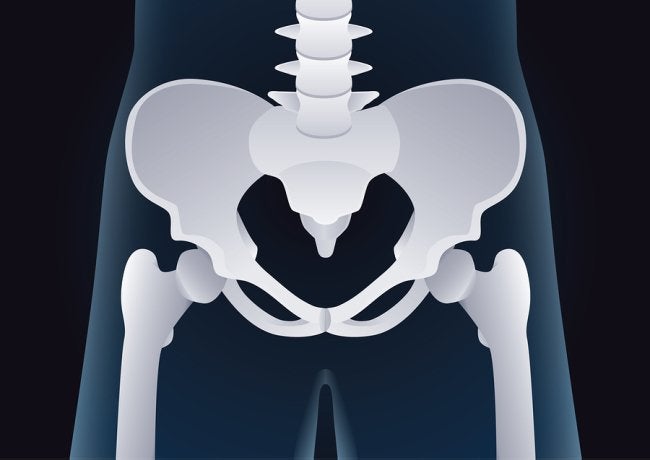-
Your Treatment Options for Pelvic Organ Prolapse

Pelvic organ prolapse can be a painful problem that can lead to incontinence and sexual dysfunction for the women who suffer from it. When pelvic organ prolapse occurs, structures within the pelvic region, including the uterus and rectum, can bulge and put pressure on the vaginal wall. Fortunately, if a prolapse does occur, help is available. Schedule an appointment with your urologist to find which treatment could be right for you.
Lifestyle Habits
For pelvic organ prolapse that is not causing severe symptoms, the only treatment that may be necessary is making lifestyle changes. Increasing the fiber in your diet to at least 20 grams per day to reduce the risk of constipation can help, as can maintaining a healthy weight. Do Kegel exercises daily, which strengthen the pelvic muscles. Don’t do any activities that involve heavy lifting, which can put undue pressure on the pelvic muscles.
Pessary
When lifestyle changes are not enough to control pelvic organ prolapse, then it may be necessary to use a pessary. A pessary is a plastic ring that is inserted into the vagina to hold prolapsed organs in place. It looks similar to the thick, outer edge of a diaphragm and is removable. Your urologist can talk to you about maintaining your pessary at home by removing it a few times a week to clean. If it is difficult to remove, then you may need periodic visits to your urologist so that it can be removed and cleaned in the office.
Surgery
For severe cases, surgery may be necessary. The type of surgery your urologist recommends will depend on the type of pelvic organ prolapse you have. For instance, if you have severe uterine prolapse, a hysterectomy may be the best treatment. Repair of the vaginal wall, vaginal closure, and removal of other pelvic organs are all possible.
Your urologist at Urology Associates, P.C., can help you overcome the pain and uncomfortable symptoms of pelvic organ prolapse with an array of cutting-edge treatment options. Talk to a urology specialist in Nashville today by calling (855) 901-1338.
-
What Causes Pelvic Organ Prolapse?

Pelvic organ prolapse (POP) is a common urologic condition in which one of the pelvic organs moves out of position. For example, the bladder may drop lower and push against the vaginal walls. POP can cause uncomfortable symptoms, including pain or pressure in the area, incontinence, and constipation. If you suspect you might have POP, consider visiting a urology specialist to determine the underlying cause and learn about your treatment options.
Childbirth
Childbirth is among the most common causes of POP. To understand how childbirth can cause POP, it’s helpful to have a basic understanding of the anatomy in this area. POP can affect one or multiple organs, including the bladder, vagina, uterus, and rectum. These pelvic organs are normally held in place by the pelvic floor muscles. But these pelvic floor muscles can sometimes be stretched and weakened, which impairs their ability to hold the organs in place. Childbirth is a traumatic event that requires considerable straining and places significant pressure on the abdomen. The strain can weaken these crucial muscles.
Hysterectomy
Some women who undergo a hysterectomy will later develop POP. A hysterectomy is a surgical procedure to remove one or more of the pelvic organs such as the uterus. In the absence of these organs, the structures that are left intact may shift out of place. Although POP is not inevitable after a hysterectomy, this surgery is certainly a major risk factor for it.
Obesity
Not all cases of POP can be linked to childbirth and hysterectomies. The pelvic organs may also shift out of place due to the pressure exerted on the region by excessive body weight. Specifically, obesity results in increased pressure to the pelvic floor muscles, which can allow hernias to form. In other words, the bladder or other organs may prolapse into the vaginal wall.
Urology Associates, P.C. provides compassionate and confidential care for women with urologic and sexual health conditions, including pelvic organ prolapse. Call our office at (855) 901-1338 to request an appointment with a urologist in Nashville. Additional health information is available on our website.
Recent Posts
categories
- Uncategorized
- Bladder Cancer
- Women's Sexual Health
- MonaLisa Touch
- Urology
- Urologist
- Erectile Dysfunction
- Kidney Cancer
- Incontinence
- Prostate
- MonaLisa Touch Laser Treatment
- Kidney Stones
- Urinary Tract Infections
- Event
- Sexual Dysfunction
- Testicular Cancer
- Prostate Cancer
- Urology Surgery Center
- urinary incontinence
- vaginismus
- noncoital pain disorder
- Hypoactive Sexual Desire Disorder
- Infographic
- provenge
- Xofigo
- robotic surgery
- hormone replacement
- diabetes
- renal cell carcinoma
- pelvic pain
- hematuria
- sexual health
- chronic testicular pain
- premature ejaculation
- Men's Health Clinic
- Dr. Melvin Seard
- Interstitial Cystitis
- vasectomy
- overactive bladder
- vaginal atrophy
- nocturia
- bladder infections
- urethral strictures
- Acute Epididymitis
- low sex drive
- circumcision
- pelvic floor dysfunction
- Peyronie's Disease
- prostatitis
- female sexual dysfunction
- varicocele
- difficult urination
- low libido
- PSA levels
- male fertility
- penile prosthesis
- prostatic intraepithelial neoplasia
- male infertility
- estrogen levels
- nurse navigator
- stress urinary incontinence
- vaginal yeast infection
- elevated psa
- painful sex
- adult circumcision
- epididymitis
- OAB
- kidney infection
- penile cancer
- pelvic organ prolapse
- Vasectomy Reversal
- bone health
- cystectomies
- clinical trials
- bloody urine
- Advanced Therapeutic Center
- WISH MedSpa
- neurogenic bladder
- WISH Team
- prostate biopsies
- BPH
- fecal incontinence
- lithotripsy
- osteoporosis
- kidney cysts
